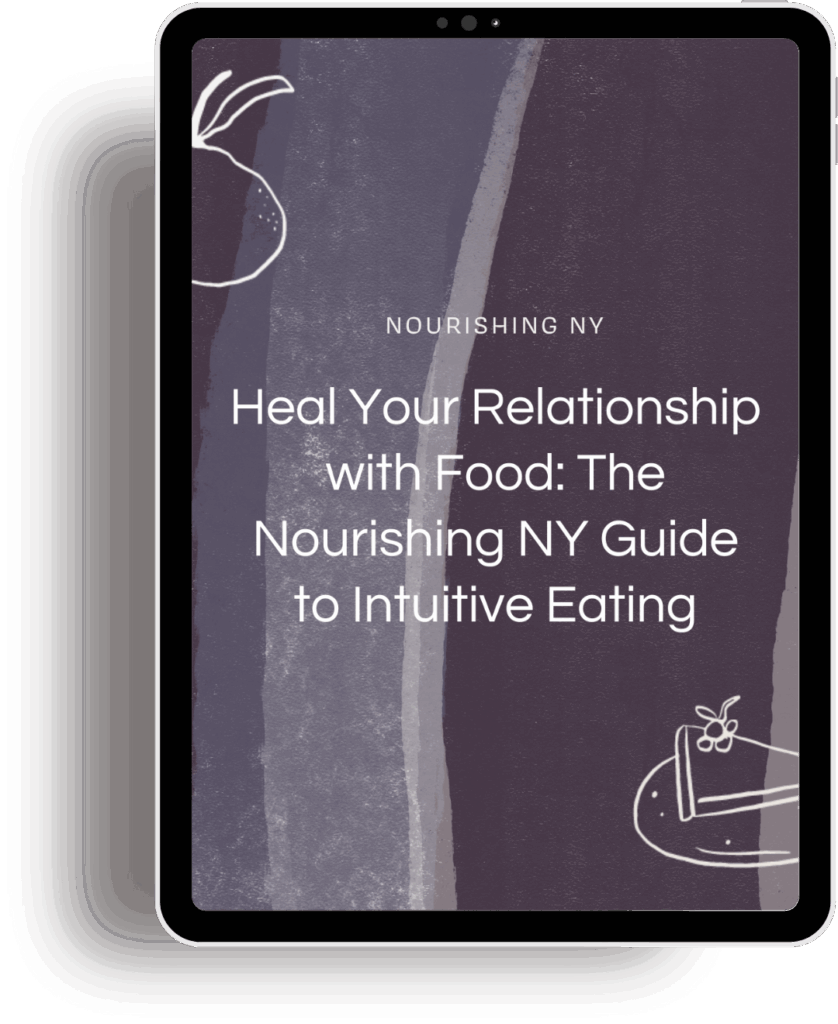Signs and symptoms of disordered eating are varied across multiple facets of a person’s life. There are emotional, behavioral, and physical signs that someone is suffering from disordered eating behaviors and even more behaviors that allude to a specific eating disorder.
What makes these behaviors even more difficult to distinguish is the normalization of disordered eating due to the prevalence of diet culture. Food rules, inflexible routines, unusual interest in what others eat, a sudden interest in nutrition, a preoccupation with “clean” eating, or a sudden decision to become vegan without an interest in animal rights are normalized under the reign of diet culture, but these behaviors are indicative of disordered eating patterns and an unhealthy preoccupation with food. Dieting in its early phases can eventually lead to the development of an eating disorder. Frustration from not losing weight on a diet can lead to the use of diet aids such as laxatives and diuretics. These aids won’t work either, which may lead to anorexia nervosa through chronic restriction or bulimia through purging.
Emotional and Behavioral Signs
-
A preoccupation with weight, body size, and shape – for example excessive weighing/body measurements and body checking in the mirror frequently
-
A preoccupation with food – for example counting calories and macros
-
Restriction of foods and food groups, for example suddenly going vegan, eating “clean”, and jumping on different fad diets
-
Trying to eat when alone and avoiding eating around others – for example skipping meals and taking very small portions
-
Food rituals, food rules, or odd behaviors with food – for example tearing apart food into very tiny pieces, excessive chewing, odd food combinations, and not allowing foods to touch
-
Extreme mood swings
-
Bathroom use discreetly and directly after a meal, especially with water running for an extended period of time of mask noises
-
Inflexible routine around food and exercise
-
Unusual interest in other peoples food as well as excessive viewing of cooking shows or food related videos in an attempt to “eat vicariously” or to monitor and compare intakes
-
Sneaking exercise or food, as well as lying about these behaviors
-
Wearing oversized/baggy clothing
-
Having a zoned out expression
-
A need to prepare all food in order to control what goes into the food
Physical Signs
-
Noticeable weight fluctuations
-
Non-specific gastrointestinal complaints – such as stomach cramps, constipation, and acid reflux
-
Irregular or missing menstrual periods
-
Difficulty concentrating
-
Dizziness and fainting
-
Feeling cold all the time
-
Abnormal blood work
-
Issues with sleeping
-
Calluses on the tops of the finger joint as well as dental problems caused by self-induced vomiting
-
Dry skin, dry hair, brittle nails
-
Yellow skin
-
Poor wound healing
-
Muscle weakness
Disorder Specific Signs and Symptoms
Warning signs of anorexia nervosa may be dramatic weight loss, dressing in layers, preoccupation with weight and food, resistance to maintaining an appropriate bodyweight, and maintenance of an excessive exercise schedule.
Warning signs of bulimia nervosa include disappearance of large amounts of food in a short period of time, presence of lots of empty wrappers, frequent trips to the bathroom, signs of vomiting, presence of laxatives or diuretics, excessive water or zero calorie beverage intake, excessive use of gum, mints, or mouthwash, and calluses on the back of the hands and dental issues caused by self-induced vomiting.
Warning signs of binge eating disorder include secret recurrent episode of binge eating, low self-esteem, feelings of disgust, depression, and guilt, stealing or hoarding food, having schedules and rituals to ensure there is time for binge sessions, disappearance of large amounts of food in a short period of time, and presence of large amounts of wrappers and containers.
There are many behaviors that can signify or be warning signs of disordered eating and even more specific ones to point towards a particular eating disorder. Though many of these behaviors are normalized within diet culture, they are not! There is more to life than a preoccupation with body weight and food. Putting too much emphasis on controlling these two aspects of your life is a warning sign of something more beneath the surface!
References
Daniels, E. (2020, December 30). 20 subtle warning signs of eating disorders. Dr. Elayne Daniels. https://www.drelaynedaniels.com/20-subtle-warning-signs-of-eating-disorders/
Warning signs and symptoms. (n.d.). National Eating Disorder Association. Retrieved July 12, 2022, from https://www.nationaleatingdisorders.org/warning-signs-and-symptoms



